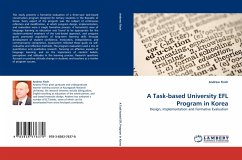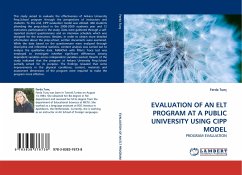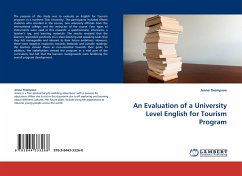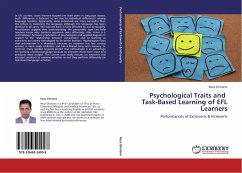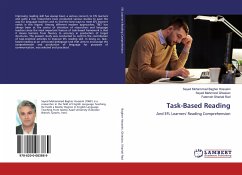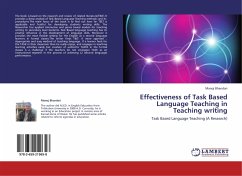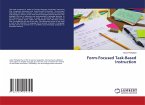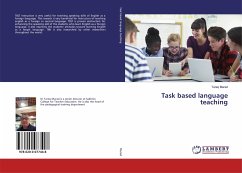This study presents a formative evaluation of a three-year task-based conversation program designed for tertiary students in the Republic of Korea. Every aspect of the program was the subject of continuous reflection and modification, in which program design, implementation, and evaluation were a single formative process. A humanistic view of language learning as education was found to be appropriate for the student-centered emphasis of the task-based approach, and program goals promoted acquisition of long-term learning skills through development of student confidence, motivation, independence, and communicative competence. Assessment reflected these goals via self-evaluative and reflective methods. The program evaluation used a mix of quantitative and qualitative research, focusing on affective aspects of language learning, and on the importance of student beliefs, perceptions and attitudes in the learning process. Research questions focused on positive attitude change in students and teachers as a marker of program success.
Bitte wählen Sie Ihr Anliegen aus.
Rechnungen
Retourenschein anfordern
Bestellstatus
Storno

